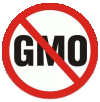Bob St. Peter and Heather Retberg, board members of Food for Maine’s Future will be traveling to Yale this week to speak at an academic conference on the food sovereignty issue. Here is a synopsis of the conference and then the short version of the paper that Heather participated in writing. Very exciting and heady stuff.
“Sponsored by the Program in Agrarian Studies at Yale University and
the *Journal of Peasant Studies*, and co-organized by Food First, Initiatives in
Critical Agrarian Studies (ICAS) and the International Institute of Social
Studies (ISS) in The Hague, Yale Sustainable Food Project, as well as the
Amsterdam-based Transnational Institute (TNI), the conference “Food
Sovereignty: A Critical Dialogue” will be held at Yale University on
September 14–15, 2013. The event will bring together leading scholars and
political activists who are advocates of and sympathetic to the idea of
food sovereignty, as well as those who are skeptical to the concept of food
sovereignty to foster a critical and productive dialogue on the issue. The
purpose of the meeting is to examine what food sovereignty might mean, how
it might be variously construed, and what policies (e.g. of land use,
commodity policy, and food subsidies) it implies. Moreover, such a dialogue
aims at exploring whether the subject of food sovereignty has an
“intellectual future” in critical agrarian studies and, if so, on what
terms.
Conference Paper # 40: Community Autonomy and Local Food: Seeking Food
Sovereignty in Maine, by Hilda E. Kurtz in collaboration with Heather
Retberg and Bonnie Preston*
In 2011, a group of food and farmer activists in Maine set off a maelstrom
of political activity in and around the food sovereignty movement when they
drafted and placed on town meeting warrants a Local Food and Community
Self-Governance Ordinance. Intended to maintain the viability of small
farms in a struggling rural economy, these ordinances exempt direct
transactions of farm food from licensure and inspection. Their goal is to
maintain control of food at the local level by asserting the right to
remain autonomous from the corporate industrial food system. Conceptually,
they draw on a populist ethos and the town meeting tradition to invite
broad democratic participation in pressing claims for food sovereignty.
This paper traces the ordinance strategy and its effects through activist
networks and into the halls of the state capitol, where the governing and
the governed have wrestled over the last two years with fundamental and
difficult issues facing food systems. Recognizing the play of multiple food
sovereignties in different settings, we suggest that this work offers
insight into possible trajectories of food sovereignty as a movement for
radical change in the food system by reasserting the right to define a
local food system and drawing a protective boundary around traditional
foodways. The concept of food sovereignty – democratic control of the food
system, and the right of all people to define their own agrifood systems
(US Social Forum 2010) – implies a re-scaling of food production and trade
regimes, away from industrial scale production for international trade to
food systems organized at local and regional scales. Beyond such a
re-scaling, however, food sovereignty discourse is ambiguous if not
ambivalent about the geographic scales at which food sovereignty can and
should be achieved. Main ordinance advocates engage with the scale problem
directly by arguing for the need for scale appropriate regulations for
small scale production for direct sale; in addition, they draw on Maine’s
tradition of Home Rule to frame perhaps the first legible spatial
expression of food sovereignty in the United States. This paper examines
the ordinance strategy and its ripple effects as a politics of scale, in
which different expressions of geographic scale shape both the form and the
content of political debate. The stakes in this struggle are high,
concerning intersections of life and livelihood, autonomy and its absence,
and bases for knowing and for evaluating risk. We view these stakes as
biopolitics, or struggle over the exercise of biopower. In the exertion of
biopower, states (and other actors) manage population health through the
use of vital statistics and other technologies. Foucault demonstrates that
as new forms of knowledge and regimes of truth made population health
knowable, biological experience shaping individual and collective life,
like dietary practices, became linked to the exercise of state power. The
paper traces how the food sovereigntists of Maine use politics of scale to
face off against biopower as exercised through corporate influence over
food and farm regulations.”
 You are all invited to attend a potluck, harvest bounty swap and strategy session at the Troy Howard Middle School in Belfast.
You are all invited to attend a potluck, harvest bounty swap and strategy session at the Troy Howard Middle School in Belfast.


 Posted by savingseeds
Posted by savingseeds 



